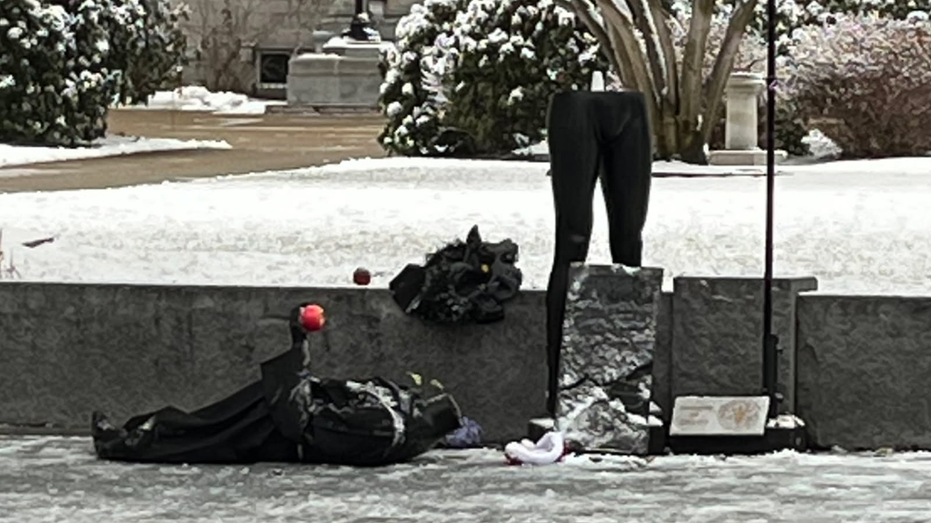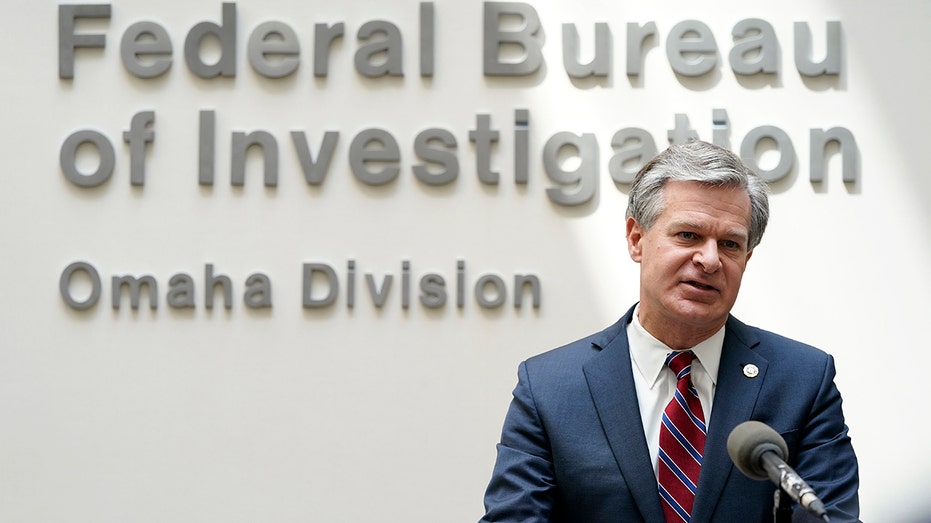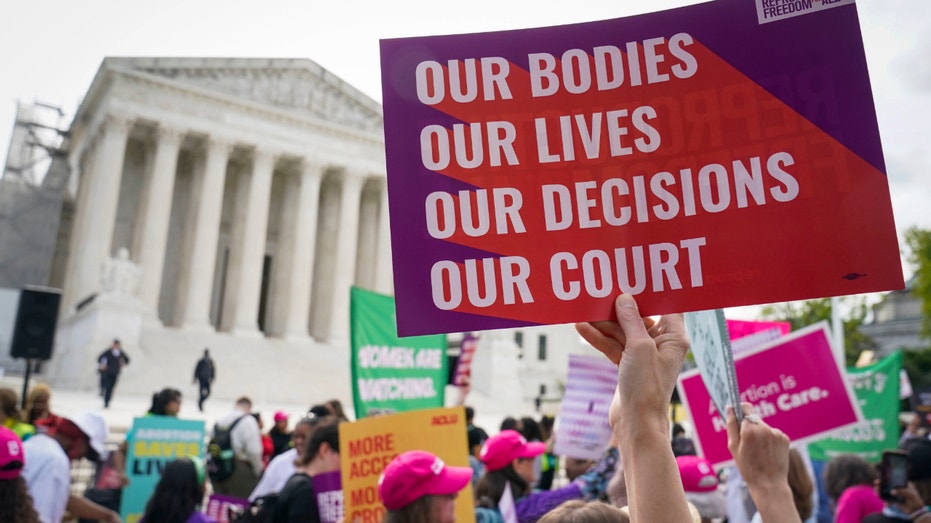Satanic Temple's nativity display in New Hampshire destroyed, Dem rep calls for new display
A satanic "nativity" display involving an occult statue erected on Concord city property near the New Hampshire State Capitol was destroyed shortly after several vandalism incidents last week. Now, Democratic state Rep. Ellen Read is saying that the temple "probably should" get to erect a new display in its place.
"I think they probably should, because I think the vandalism and the hatefulness shouldn’t go without a response. But it’s up to them," Read said, the Catholic News Agency reported.
Read told the outlet she came up with the idea to suggest that The Satanic Temple (TST) put up the Christmas display, which was a statue of Baphomet – despite significant pushback from local officials – arguing that a Catholic groups' Nativity scene of Jesus should not be the only decoration there. She also said she is a member of TST but has not participated in any of its meetings or events.
According to its website, TST's mission "Is To Encourage Benevolence And Empathy, Reject Tyrannical Authority, Advocate Practical Common Sense, Oppose Injustice, And Undertake Noble Pursuits."
"We have publicly confronted hate groups, fought for the abolition of corporal punishment in public schools, applied for equal representation when religious installations are placed on public property, provided religious exemption and legal protection against laws that unscientifically restrict people's reproductive autonomy, exposed harmful pseudo-scientific practitioners in mental health care, organized clubs alongside other religious after-school clubs in schools besieged by proselytizing organizations, and engaged in other advocacy in accordance with our tenets," the website states.
Avoiding a legal dispute over the First Amendment, the Concord City Council approved the organization's permit to show the display, despite the mayor saying earlier this week he wished the city had not approved it.
NEW YORK SCHOOL DISTRICT ALLOWS STUDENT TO FORM BIBLE CLUB AFTER PREVIOUSLY DENYING PERMISSION
"I opposed the permit because I believe the request was made not in the interest of promoting religious equity but in order to drive an anti-religious political agenda, and because I do not respond well to legal extortion, the threat of litigation," Concord Mayor Byron Champlin said during the council's meeting last Monday. "Some on social media have celebrated the Satanic Temple’s display as a victory for religious pluralism and a reflection of our growing diversity as a community. I disagree with this. This is about an out-of-state organization cynically promoting its national agenda at the expense of the Concord community."
Meanwhile, the city put out a statement saying that due to the First Amendment and the potential for a lawsuit, the city was forced to choose between banning all holiday displays or allowing TST's statue.
"After reviewing its legal options, the City ultimately decided to continue the policy of allowing unattended displays at City Plaza during this holiday season and to allow the statue," the city said in a statement. "It is anticipated that the City Council will review next year whether permits for unattended holiday displays should be allowed at City Plaza."
Read rebuked the mayor in an interview with the Catholic news outlet this week, saying, "I think it’s the narrow-mindedness of the mayor, who can’t seem to wrap his head around that this represents a large percentage of the community and its beliefs."
In a video posted to Facebook, two TST representatives unveiled the statue Monday. One spokesperson recalled the group's core tenets, before chanting, "Hail Satan!" and showcasing the statue.
CLICK HERE TO GET THE FOX NEWS APP
Concord Deputy Police Chief John Thomas told a local news outlet that the investigation into who vandalized TST's property is ongoing.
TST has erected several holiday displays near city or state properties, often alongside traditional Christian exhibits, in recent years. In 2022, the Illinois chapter of TST installed a holiday display in the state Capitol rotunda, which featured a crocheted serpent atop a book and a pile of apples. In December 2023, the Iowa TST chapter set up a Baphomet statue at the state Capitol, which was also vandalized shortly after its placement.


